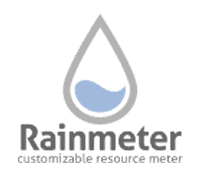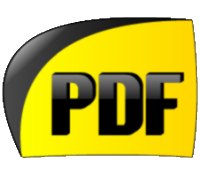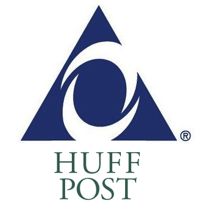
To shrink cell sites, Ericsson unveils hybrid antenna/radio unit
Wireless telecommunications leader Ericsson today announced a new cellular radio solution called AIR (antenna integrated radio) which combines the radio unit with the antenna unit for simpler installation and integration into wireless networks, with the added bonus of decreased power consumption.
Generally speaking, the smaller a company can make their cell sites, the better. With smaller parts, more parts can be added, and obtaining permits and zoning clearance becomes just a little easier. This is an issue Ericsson has been confronting head on with its cell site equipment for the past few years.

Gartner: More than half of IT organizations deploy open-source software
Uh-oh, Microsoft, perhaps it's time for a new "Get the Facts" campaign. You told the world that open-source software really wasn't cheaper or as easy to manage as commercial products. Well, only about half of IT organizations believed you.
Today, Gartner released findings that more than one-half of IT organizations use open-source software, based on a survey of 547 IT organizations from 11 countries. To my surprise, the survey data isn't exactly fresh, having been conducted in July and August 2010. Well, it's not like most companies change platforms very often, so perhaps six months is fresh enough. Gartner refers to open-source software as OSS.

Kindle gets real page numbers; better note, highlight & review sharing
Amazon on Monday pre-released a software update for Kindle e-readers running the 3.0 software which updates the interface for magazines and newspapers, adds a quick review section at the end of each book, and adds page numbers that match Kindle books with their print counterparts.
This update is very minor, and the only new feature that takes effect immediately in all content is the "before you go" review section. Here, when you reach the end of a book, you're presented with the option to review your book, or send out a tweet announcing that you just completed the book.

IDC: Samsung smartphone shipments grew 439% in Q4 2010
I'm in a contrary mood. While everyone else is obsessing about iPhone and Research in Motion smartphone shipments, I'm singling out HTC and Samsung, which combined fourth-quarter performance foreshadows changes coming to the global smartphone market. Earlier today, IDC released Q4 and full-year 2010 smartphone shipments. Sidebar: For those folks still obsessing about Strategy Analytics tablet data, IDC likewise measures shipments into the channel. For actual sales -- that is to customers -- Gartner will soon deliver them.
As others have reported, Apple nudged out RIM for second place in global smartphone share for fourth quarter, but not the year. While Apple shipments rose 86.2 percent, market share was a flat 16.1 percent in Q4 and the year-ago quarter. This trend I have repeatedly observed: ComScore smartphone shipment data released today and in January; Nielsen data released last week and early January; Canalys data released eight days ago and mid January. Apple is shipping a heck of a lot of phones, but the big growth and share gains belong to Android OS and its supporting manufacturers.

This is getting boring -- iPhone US smartphone share remains flat while Android soars
Man, Verizon can't ship iPhones fast enough. Apple's smartphone wheezed into the holidays eating Android's dust, according to data released today by ComScore. Only Verizon can save iPhone now, but ComScore won't record those sales, which started as preorders last week, until March.
The trend is so consistent, it's getting boring to report: Apple continued its flat growth for the three-month period ending in December. Apple's smartphone share rose slightly, from 24.3 percent to 25 percent. Meanwhile, Android's US smartphone market share rose from 21.4 percent to 28.7 percent. The data is fairly consistent with December market share and growth numbers released last week by Nielsen: Flat iOS market share growth and Android rapidly rising -- 43 percent of recent purchasers chose a smartphone running Android in December. However, Nielsen put iPhone 1 percentage point ahead of Android handsets, based on operating systems. ComScore uses US mobile subscribers to measure smartphone platform market share.

Kyocera outdoes Samsung with a real dual-screen Android smartphone
Kyocera Communications and Sprint on Monday unveiled a new dual-screen Android smartphone called the Echo, which uses two discrete touchscreens, unlike the other "dual screen" Android phone, Samsung's Galaxy S Continuum which is just a single touch panel broken into three independent sections.
When closed, the Echo looks like a regular touchphone, but when opened, its two 3.5" touchscreens can be used to run two full screen applications pseudo-simultaneously, one on each screen. Sprint has given this the name "Simultasking," since it's a task that has heretofore not been done on Android phones. Echo can also be used in "tablet mode" and have a single application blown up to 4.7" to take up the combined screen real estate, or apps can be optimized to use each screen individually. In "optimized mode," the Echo looks quite a bit like a Nintendo DS, dividing an app's functionality into two useful parts.

LibreOffice 3.3: Fast, fun and functional
Microsoft Office is such a comprehensive and powerful suite that at one time it was hard to imagine there would ever be a free equivalent. Fast forward to 2011, though, and we actually have a choice of two (well, sort of). OpenOffice.org, of course, has been around for years, but it's also recently produced an arguably more interesting spinoff, in The Document Foundation's LibreOffice 3.3. This is based on the same code (though with a few additions of its own), so if you've ever used OpenOffice then LibreOffice will seem very familiar.
There are the same core six applications, for instance: Write handles your word processing needs; Calc is a powerful spreadsheet; Impress can create presentations and slideshows; Draw is a vector graphics tool for creating diagrams, flow charts and more; Base is a database management application, and Math allows you to create and edit mathematical equations.

Comodo enters Mac security market with new antivirus beta
The free Mac antivirus market continues to expand with Comodo joining Sophos in releasing a free antivirus program for Mac users. Comodo Antivirus for Mac isn't yet a finished product, but a public beta has been released for the purpose of testing ahead of a general release.
Comodo Antivirus for Mac offers the usual protection offered by antivirus solutions: real-time protection in the form of scanning all files as they are accessed, plus scheduled and manual scanning, with two levels of scan available: critical (covering areas likely to harbour infections) and full, (which scans the entire hard drive). There's a quarantine section for suspicious files, full logging and support for both scan profiles and tweaking of scanner settings.

Happy Birthday, Rainmeter: Version 2.0 released
Rainmeter 2.0, an open-source desktop widget tool for Windows, has been released. Version 2.0 was originally developed as version 1.4, but the developers decided to make it a major release due to the changes implemented, plus to celebrate the second anniversary of the project's "re-birth."
Rainmeter 2.0 has been repackaged so that a single installation file covers both 32- and 64-bit Windows builds as well as an optional portable installer option. The installer has also been shrunk considerably by removing the two default "theme" packages from Rainmeter and distributing them separately. Instead, Rainmeter now comes bundled with a simple starter theme called Illustro.

Sumatra PDF 1.3 improves performance, navigation and usability
Install Sumatra PDF 1.3, the latest version of the popular open-source PDF reader, and at first glance it'll look much as it always did. (Yellow, mainly.) But don't be fooled. The new build has plenty of worthwhile improvements and tweaks just beneath the surface.
The package now uses the libjpeg-turbo library instead of libjpeg, for instance, which means that non-greyscale embedded JPEGs will typically be decompressed two to four times faster than in the previous version.

Tip: Troubleshoot Mac problems with atPurpose Monitor
If you're looking to monitor your Mac's system resources, then your first thought will be to access the built-in Activity Monitor tool. It'll list all running processes, plus reveals the state of play with key hardware components, namely CPU, memory, disk activity and usage, and network traffic. That's fine and dandy for the average user, but what if you need more information -- or want more control over those running processes? The solution lies in the free system monitoring tool, atPurpose Monitor.
atPurpose Monitor lists everything Apple's own Activity Monitor does, but it does it better: processes are split off from hardware monitoring into their own dedicated window, while the Activity Viewer, which can sit in the menu bar or float on-screen, displays all of the key hardware information you need without having to switch tabs to view it all. It also displays the three most demanding system processes, letting you see which programs are currently hogging system resources, and it can be configured to display both CPU and GPU temperature too. Roll the mouse over the RAM entry, and you can flush the disk caches and reclaim physical RAM -- choose Purge RAM to do so.

AOL's schizophrenic media strategy continues with Huffington Post buy
These days, it's hard to tell what AOL is trying to accomplish with its acquisitions. From its purchase of Engadget and Weblogs, Inc. in 2005, to TechCrunch last September, each time the company appeared to be attempting to buy its way to the top of the digital media heap.
The acquisition of Huffington Post announced early Monday morning was no different. AOL paid $315 million for the site, and put its figurehead Arianna Huffington as the president of its media division, which now would include all the disparate blogs that the Reston, Va. Based company has amassed over the years.

Microsoft adapts product support lifecycle -- 'to the cloud!'
I've always thought that one of the keys to Microsoft's success in business computing is its support lifecycle policy. When you buy a Microsoft product for your business you can count on a long period of support and bug fixes and an even longer period of security updates. Now Microsoft is adapting its support lifecycle policy to the cloud.
Click here to read Microsoft's main page on its support lifecycle. I'm running Windows 7 64-bit on a ThinkPad. The OS shipped October 22, 2009 and "mainstream support" ends January 15, 2015. After that (for business products) there are 5 years of "extended support" in which free (well, no such thing, let's say included with the software price) Microsoft support ends (other than security updates), and you can't request feature changes anymore. But you can at least buy all other support options. After 10 years, usually the "in the wilderness" phase of support starts, but at least Microsoft keeps support info on its web site. This is the phase into which, for example, Windows 2000 recently entered.

Gadget geeks say 'No way' to $800 Motorola XOOM tablet pricing
This morning I asked: "Would you pay 800 bucks for the Motorola XOOM?" The answer is a resounding "No fraking way, Jose!" A leaked Best Buy advert suggets the Android 3.0 (e.g., Honeycomb) tablet will be available on February 24 for $799.99. The price sure surprised me and incensed some of you. All I can say: The pricing won't cause Apple CEO Steve Jobs to lose any sleep over potential iPad competition. But Mobile World Congress convenes in one week, and Samsung already has hinted that the Galaxy Tab's successor will be announced there. So Jobs shouldn't blissfully dream yet.
"Never in a million years," writes ezryder in Betanews comments. "The right price, as noted by others, is about $300-$400. No contract. WiFi only. Because really, do you need the damn thing fully connected all the time? And even if you do, turn your phone into a hotspot and WiFi tether the thing to it. The best value right now, by far, is a rooted Color Nook -- $250, and it has a screen with the same res as the iPad, only it's 7 inches instead of 9.7 inches."

31% of EU Internet users were infected by worm or Trojan in 2010
Eurostat, the European Union's office of statistics, Monday said that 31% of all Internet users in the 27 EU member nations had contracted a computer virus that resulted in "loss of information or time" in the second quarter of 2010.
Eurostat found that 3% of all users suffered some kind of financial loss related to phishing/pharming attacks or fraudulent credit card use, and 4% of all users reported an abuse related to personal information and privacy.



